January 11, 2024
(press release)
–
Scientific breakthroughs in the study of nature and how to mimic it have fuelled a biotechnology revolution. Scion is leading the way for New Zealand in this area and supporting industry to solve some of the world’s biggest environmental challenges. Nature is the ultimate designer, thanks to evolution, demonstrating the fundamental adapt-or-die philosophy that underpins the very essence of life. Why is this more relevant than ever? Because globally we are facing environmental threats never seen in our history. And currently, our reliance on fossil fuels and petrochemical resources for medicine, food security, fuel and energy are absolute. The ultimatum we and the climate are currently facing has given rise to the biotech revolution, fuelled by an ever-increasing understanding of biology at a molecular level. And not a moment too soon. Biotechnology is biology wrapped in engineering principles. And it isn’t just a buzz word – biotech is a critical tool in our fight against climate change and preserving our way of life for the future. It encompasses a wide range of areas that will allow us to transform global and local economies through wide-spread innovation, tackling challenges in food and fibre production, and creating the potential to engineer and produce new bio-sourced products, ingredients and materials – including invaluable new medicines and therapies. This, combined with using local feedstocks and waste streams, will help combat climate change, safeguard supply chains and create a more sustainable, circular bioeconomy. The role of industry The need to find alternatives to fossil fuels is imperative. And the area that will have the most impact will be in the industrial biotech space. Why? Scale baby, scale. With 97 million barrels of fossil fuel produced every single day world-wide for chemicals, polymers and fuel, solutions need to be at scale, or the impact just won’t be big enough, or quick enough. Industry itself is increasingly working towards addressing the climate crisis, minimising carbon and waste emissions, and finding alternatives to petrochemicals and fossil fuels. As the world looks for greener, more sustainable solutions, industrial biotech becomes even more critical. In New Zealand, there are several companies recognising this emerging opportunity and working hard in this space. Scion also sees the critical role biotech at scale will play and is investing heavily in both infrastructure, capabilities and people to work alongside industry for change. Scion’s biotech focus Industrial biotech is going to be the primary mechanism to replace petrochemical-derived products, with a big focus on scale, commodity materials and products, as well as low-cost, high-volume feedstocks. This is a key focus for Scion as it responds to the needs of industries looking to deliver bio-based products and ramp up production. There has been increasing investment in the development of bioplastics, bioconversion of organic waste materials, conversion of C1 gases (carbon dioxide, carbon monoxide and methane) into useable products, and scaling fermentation processes. A number of commercial partnerships have been developed with exciting Kiwi companies and start-ups working in these areas, to help prove the technology and assist in scale-up. Scion scientists have been working alongside many of these partners in the lab to help development – highlighting a seismic shift in how Scion works with industry. Experienced team Scion is leading New Zealand in the biotech space under the experienced stewardship of Dr Alec Foster, who heads Scion’s bioproducts and packaging portfolio. Foster oversees research with nearly 100 companies, as well as large internal research projects. He brings a wealth of experience in the synthetic biotech and genetic engineering space. With a professional background spanning both Europe and the United States, he formerly oversaw one of the world’s largest industrial biotechnology research programmes. “My goal at Scion is to use biotechnologies to protect New Zealand. Industrial biotechnology is also one of the biggest ways in which we’re going to meet our sustainability targets and is the only viable option for producing bio-based plastics and petrochemical alternatives that will create real impact, at scale. “In a petrochemical society, we rely on oil for medicines, plastics, energy – we need to shift away from that.” Scion microbial biotechnology team lead Christophe Collet also plays a pivotal role. Before joining Scion eight years ago, Collet led fermentation operations for LanzaTech, involving the development and scale-up of fermenting carbon monoxide (specifically from steel mill waste gases) into chemicals such as ethanol. LanzaTech is now home to the most successful carbon recycling technologies on the planet. Investing in capability Working closely together over the past 18 months, Scion’s industrial biotech portfolio has grown exponentially. The team has expanded, there’s been investment in new automated fermentation equipment and there are ongoing efforts to expand the laboratories. All in the hopes of accelerating the research pipeline to commercialisation. Scion is leading New Zealand in fermentation technology, which uses bacteria and yeast to convert industrial waste streams and greenhouse gases into high-value products. Scion has recently invested significantly in capability to allow more optimisation at a smaller scale with Sartorius ambr 250ml bioreactors, resulting in faster scale-up pathways. Sartorius is considered the gold standard of bioreactors and Scion’s are the only ones available in New Zealand for commercial use. “We have the only lab in New Zealand that uses Sartorius fermentation units at multiple scales – 250ml, 10L, 100L,” Foster says. “This means methods, processes and optimisations can be transferred reliably not only within the lab, but between most leading labs internationally. It also has a benefit of technology transfer as processes can be scaled up with far greater predictability.” Scion’s bioreactors are currently booked up six months in advance, with demand only growing from industry. Scion is not only looking to support research but ensure impact. “One big challenge for New Zealand is transferring research from the laboratory to creating impact at scale. CAPEX investment is too great a risk,” Foster says. “We are working with government and industry to change this, investing in capacity and partnerships to help de-risk and prove the technology. We are connecting New Zealand companies to world-leading organisations.” Working alongside industry Foster’s involvement has helped bring a more commercial aspect to the science. This, combined with the depth of growing expertise within the team, has resulted in several new commercial partnerships. Scion is currently working alongside two companies to help secure funding bids and build pilot-scale plants in New Zealand, with another five commercial science and research partnerships currently in place. One such partnership is with Plentyful, set to scale up production of PHAs (polyhydroxyalkanoates – biopolymers with similar characteristics to petroleum-derived polymers), turning organic waste from industry into bio-based materials like plastics and resins, as an alternative to oil-based plastics. Scion is working alongside Plentyful to establish a pilot-scale plant in Marton, utilising significant waste streams from food, viticulture and wood. Managing director Jayden Klinac says Scion and Plentyful are aligned with research that supports the development of New Zealand’s circular bioeconomy. “At Plentyful, we envision a New Zealand where technology meets sustainability, turning yesterday’s waste into tomorrow’s resource. “Partnering with Scion, we’re scaling innovations that promise a cleaner, resource-efficient future, ensuring ‘waste’ becomes a word of the past for the coming generations.” Scion is also working with geothermal research and innovation company Upflow to build a pilotscale plant that turns carbon dioxide and methane emissions into animal feed. Synergy in science This year has also seen Scion develop a working relationship with Humble Bee Bio, a biotech company designing and commercialising biomaterials from a protein produced by bees. Humble Bee Bio technical director, Andy Herbert, says the company is on a mission to develop biomaterials for a range of applications where petrochemicals are currently being used. “We aim to create high-performance, renewable and biologically derived materials that replace and displace those currently produced from petrochemicals. “As a society, our scale of consumption is enormous. We need solutions to be at scale as well. If New Zealand wants to do things in this space we need to find ways to think at scale and attract the investment required to do that. “Scion is the leading organisation in New Zealand in terms of thinking and science around this, understanding the need to move from development in the lab, through to prototyping, demonstration and eventually commercialisation.” Humble Bee Bio looks specifically at a novel structural protein produced by a species of solitary bee, in the form of a ‘silk’ which it uses to wrap its larvae in while they pupate (grow). The silk has similar characteristics to cellophane. The partnership with Scion came about in 2023, and Herbert says it has “put a rocket under the prototype process”. After establishing the protein chemical story of the bee and its silk, and what genetic information could be translated into producing proteins for particular materials, the last 12 months have been about prototyping. “The move to working with Scion has enabled us to access the technology and expertise for larger biotech processing, which was needed to produce more material to work with for prototyping.” Herbert says end products could be used for things such as coatings, fibres and films. “The work we’ve done with Scion has unlocked the ability to make prototypes at scale, which has been pivotal in moving us towards being able to more quickly test materials and their performance.” Working with Scion has provided the flexibility, knowledge and collaboration that complements Humble Bee Bio’s expertise and ethos, he says. “It’s been a hand-in-hand piece of process development, which speaks to the flexibility of both organisations.” Outcomes at scale will be king LanzaTech co-founder and one of the world’s most successful biotech entrepreneurs, Dr Sean Simpson, says the urgency around scaling up and normalising sustainable industrial production systems is palpable. “Climate change is now literally killing people. We’ve got to change the system. You never change a system by fighting it, we’ve got to change it by coming up with a new system that works better. “Biotech will underpin big industrial outcomes and greater security of supply – especially for New Zealand. “There are a lot of biomass and waste resources in New Zealand that we’re not adding value to. That resource could be used to create other industries domestically, as well as securing domestic supply chains and key resources.” LanzaTech and Air New Zealand have recently partnered with Scion to investigate the creation of a sustainable aviation fuel production facility here in New Zealand, using forestry residues. “Working with Scion gives us world-leading expertise in this space, where the residues are and how to think about the likes of costing. The more bankable proposition we can present, the more likely it will lead to a commercial outcome. “We see great value going forward with Scion, not just for creating sustainable aviation fuel, but how we can repurpose forestry residues into other sustainable fuel products. “We need a greater focus on execution, scale-up and pathways to commercialisation. It’s all about creating outcomes.” This is supported by Scion’s portfolio leader and world biofuels expert Paul Bennett, who is leading the Sustainable Aviation Fuel (SAF) research. Bennett says working with a range of companies, including LanzaTech, demonstrates how connected the research across Scion is. “Biotech spans the high volume, low value to low volume paradigms.” Foster says that is the role Scion is stepping up to play in New Zealand – enabling industry to translate better technologies and scale-up to commercialisation domestically. “We are growing our capabilities and investment in people and infrastructure to be the research partner industry needs.” Looking local Global scale leads to conversations around feedstocks and the need for keeping it local – not only for minimising carbon emissions. Simpson says feedstock is what countries and industry need to focus on to develop sustainable systems for creating alternative fuels and chemicals. “The opportunity for New Zealand is to use what we have in abundance – like wood fibre, for example. That not only adds value to waste streams but creates domestic economic security.” Keeping it local will also contribute to sustainable GDP growth, high-value regional jobs and a significant reduction in CO2 equivalents. Where to from here? Biotechnology is creating a paradigm shift and it’s critical New Zealand keeps up with the rest of the world. But Foster acknowledges that we can’t do it all. “We’re too small and the cost is too great.” Building solid relationships globally will ensure New Zealand has access to the very latest in research and technology. This, alongside further investment within the organisation, are key drivers for Scion in accelerating research and capabilities for New Zealand. Care to be part of the [r]evolution? To learn more about how Scion’s biotechnology research can support your organisation’s goals, please contact Alec Foster. 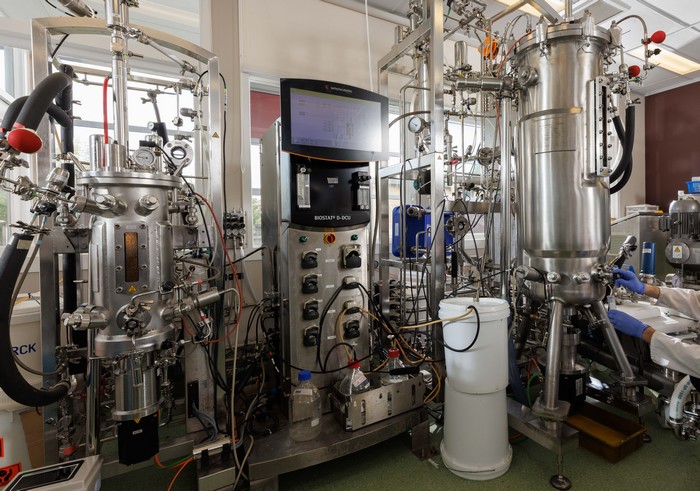
We are growing our capabilities and investment in people and infrastructure to be the research partner industry needs. - Alec Foster
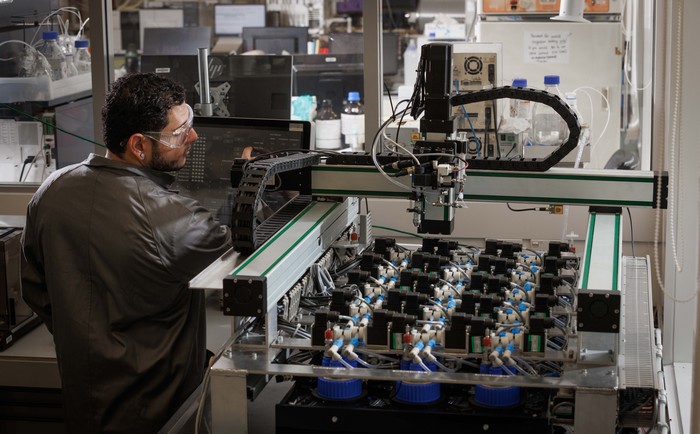
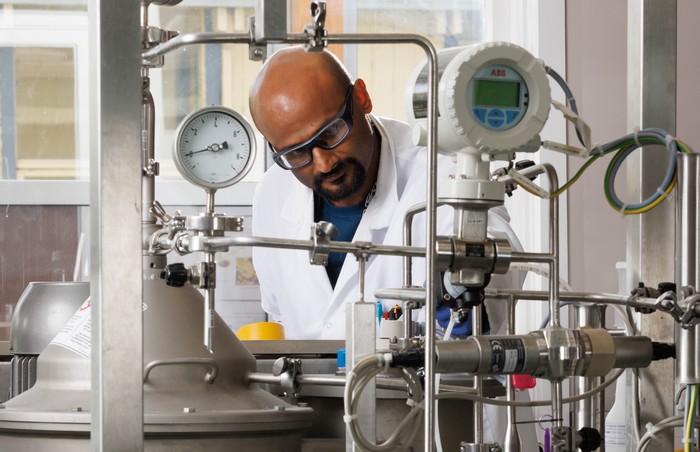
We see great value going forward with Scion, not just for creating sustainable aviation fuel, but how we can repurpose forestry residues into other sustainable fuel products. - Sean Simpson, Lanzatech
The move to working with Scion has enabled us to access the technology and expertise for larger biotech processing, which was needed to produce more material to work with for prototyping. - Andy Herbert, Humble Bee Bio
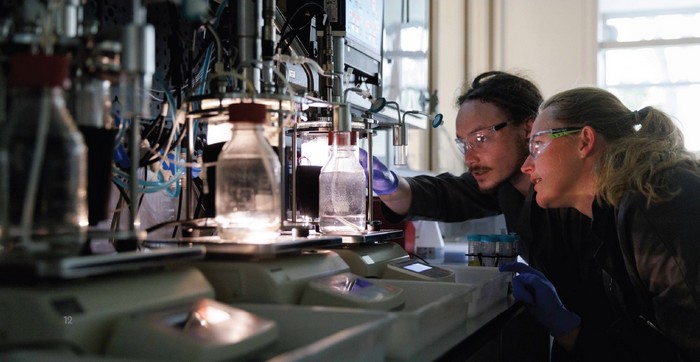
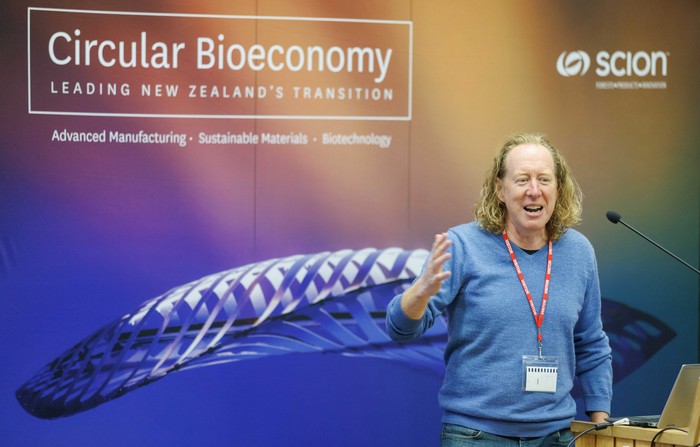
The opportunity for New Zealand is to use what we have in abundance – like wood fibre, for example. That not only adds value to waste streams but creates domestic economic security. - Sean Simpson, Lanzatech
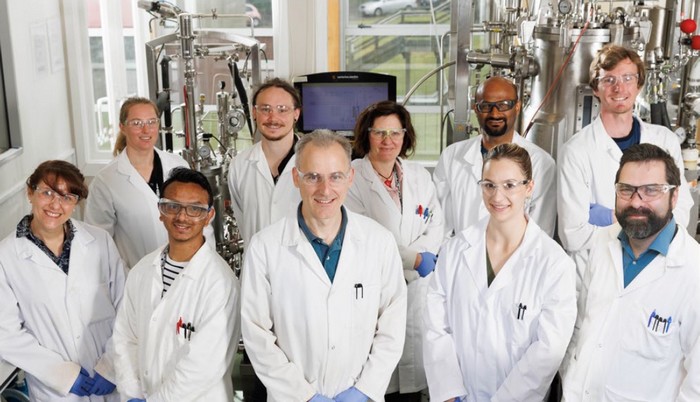
* All content is copyrighted by Industry Intelligence, or the original respective author or source. You may not recirculate, redistrubte or publish the analysis and presentation included in the service without Industry Intelligence's prior written consent. Please review our terms of use.




